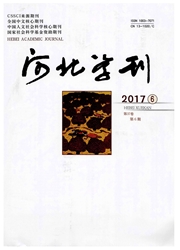

 中文摘要:
中文摘要:
作为集理学之大成的思想家,朱熹对鬼神的讨论多样而丰富。他一方面秉承理学的理性精神,把鬼神解释为阴阳二气的屈伸往来;另一方面对《五经》中关于鬼神的记载仍深信不疑。《五经》关于鬼神的讨论,既有非常哲学化、理性化的一面,也有充满宗教神秘主义气息的一面,前者以《易传》为代表,后者以“三礼”所论祭祀为代表。朱熹对《易传》“精气为物,游魂为变”,《礼记》“明则有礼乐,幽则有鬼神”,《诗经》“文王陟降,在帝左右”,《尚书》“周公为武王祷告”等的诠释,无论是在经学史还是理学史上都有着重要意义。朱熹的鬼神观从根本上说是一个类似宗教信仰的问题,其中的一些矛盾很难完全从知识理性的角度来贯通。在他看来,人们祭祀天神、地示、人鬼,一方面是气的感通,另一方面是精神信息与情感的感通。在祭祀中,天地人鬼、时空获得了一种感通与统一,这不仅是一个宗教问题,同时也是一个政治问题,其根本在于寻求统一性与连续性。
 英文摘要:
英文摘要:
Zhuzi, as a comprehensive thinker, discusses ghosts and gods in many ways: on the one hand, he follows the spirit of reason favored by Neo - Confucianism, interpreting ghosts and gods as the move- ments of Yin and Yang; but on the other hand, he firmly believes the records of ghosts and gods in Wu- jing. The discussion of ghosts and gods in Wujing not only is very philosophical and rational but also in- volves religious and mystical content. Among these features, the former is representatively shown in Yizhuan, while the latter can be seen in the discussion of sacrifice in Sanli. Zhuzi~ views on the various discussions of ghosts and gods in the classics such as Yizhuan, Liji, Zuozhuan, Shijing, and Shangshu are of great significance both in the history of the study of Confucian Classics and in the history of Neo - Confucianism. Zhuzi' s idea of ghosts and gods is essentially close to religious beliefs, including contra- dictions that can hardly be understood in terms of knowledge and reason. People' s activities of sacrifice to gods and ghosts are not only communications of Qi but also communications of spirits and feelings. In sacrifice the heaven and the earth, human beings and ghosts, as well as space and time are all linked and unified. This is not only a religious issue but a political issue as well, both of which aim to pursue unifi- cation and continuity.
 同期刊论文项目
同期刊论文项目
 同项目期刊论文
同项目期刊论文
 期刊信息
期刊信息
